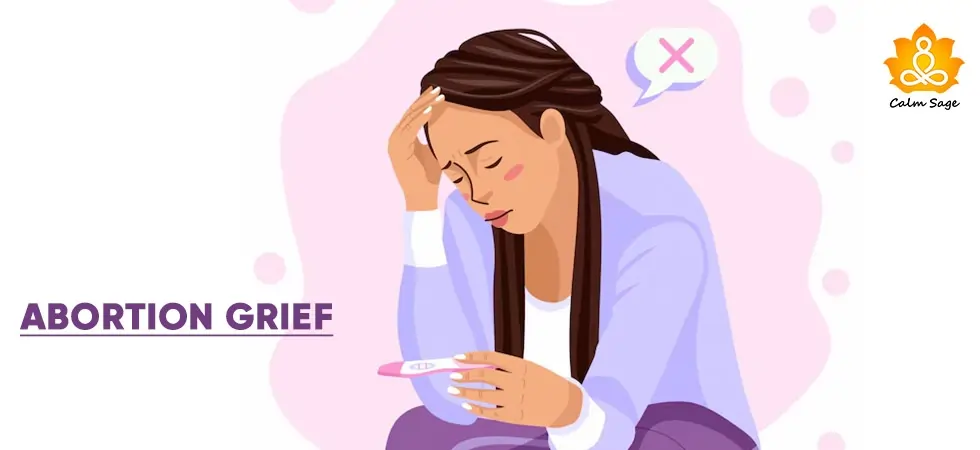Survival Guide: Learning To Endure Top 5 Major Stressful Events

We all experience stress on a regular basis, but there are some stressful life events that are so important to us. Such stressful life events not only leave us stressed but they make us anxious also! Everyone reacts to stressful life events differently and experiences differently.
While chronic stress has negative impacts on mental health, some of the stressful events top the list when it comes to intimidating situations. Researchers have ranked some of the top most stressful events out of all stressful events that occur in our day-to-day life.
In this blog, I have listed the top 5 stressful events that change our vision of life, certainty, and stability completely.
Measuring your Stress Level
If you’re feeling stressed right now due to any situation, you can measure your stress from the below link:
Taking this test will not only help in measuring your stress level right now, but it will also help in understanding the context of this blog.
5 Major Stressful Events of Life
1. Death of a Loved One
One of the highly ranked stressful life events is the death of a loved one. Death of a loved one can be unexpected and expected but it still affects our overall well-being. At the same time, we tend to experience different emotions like sadness, anger, numbness, shock, denial, and guilt that make us grieve. All those emotions are completely valid and it is completely okay to take some time and space to overcome such a big loss.
While grieving is considered to be a major stressful event, there is no right or wrong way to process your feelings; it totally depends from person to person. Here are some tips to cope with the sudden loss of a loved one:
-
Acknowledge your feelings
According to psychology, there are five stages of grief, understand your stage of grief, and allow yourself some time to understand your emotions so that you can reach the mental state of peace you need.
-
Allow yourself time to heal
Healing indeed is a long journey however; you can really heal by allowing yourself some time. You might want to isolate yourself and it’s okay, take time to understand your emotions. However, remember that it’s more beneficial to be able to share your feelings with someone.
-
Seek the right support
You can always talk about your feelings with your partner, family members, friends, or others. It can help you from feeling stressed and overcome difficult emotions.
-
Seek professional help
You can always seek the help of a professional mental health provider anytime (through online and offline modes). Moreover, if you’re dealing with a loss of a loved one, you can take the help of these below-mentioned articles:
- Are you using defense as a denial mechanism?
- The 5 Stages of Grief
- Prolonged Grief Disorder
- 7+ Types of Grief
- Grief Counseling
2. Separation or Divorce
Separation or divorce is ranked as the top stressful event which not only ends the relationship but also impacts your mental health badly. Divorce can be mutual but still, most partners have to deal with a lot of issues to move forward in life.
Not only this, but they have to go through various considerations like finances, situations, assets, custody, and more. Here are some quick tips to overcome separation or divorce from your partner:
-
Acknowledge your feelings
Finding a relationship and seeing it vanishing is heart-breaking and it’s even difficult to learn to manage the overwhelming emotions. You may start feeling hopeless, guilty, or angry… know that it’s okay to acknowledge your emotions but it’s not okay to suppress your emotions.
-
Learn to move on
Do not suppress your emotions; instead, learn to embrace them so that you can move forward more peacefully and happily.
-
Focus on self-love
Do not feel like you’ve failed, take it as a new opportunity to put yourself on the road to self-care, kindness, and self-compassion.
-
Set personal goals for yourself
Life without a partner can also be an opportunity to reach the goals you always wished for. Therefore, rediscover your goals and start working on them.
If you are going through such a phase, you can read the below articles to learn coping mechanisms:
- How men’s mental health is impacted after divorce?
- Dealing and recovering from a high-conflictdivorce
- 10 Healthy tips to cope with divorce
- Is my marriage making medepressed?
3. Moving
Moving could be anything in your life like breaking up, moving into a long-distance relationship, changing a job, changing home, or moving away from your parents. All of them could be stressful events because such events are incredibly devastating.
Moving not only involves logistical factors but also includes different factors like adjustment, understanding, financial stress, navigation, and more. Here are some quick tips to adjust to moving to some other city, changing jobs, or something else:
-
Learn to overcome your stress
Moving away can be really stressful and overwhelming for the initial days, therefore, learn to manage your stress by meditating, performing yoga, or journaling your thoughts.
-
Stay organized and keep your thoughts aligned
Initial days can look more messy, disorganized, and overwhelming; therefore, try to stay organized (not only physically) but mentally as well. Keep your thoughts, planning, and goals aligned so that you can welcome a more peaceful life in the new beginning.
-
Seek support
During tough phases, you can seek the help of a friend, colleague, partner, or loved one so that you can stay more focused.
Check out the below list of blogs to learn healthy coping strategies:
- Setting boundaries in a relationship
- Are you in a co-dependent relationship?
- 11 Major relationship goals
- Dating at different stages of life
- Making your long-distance relationship work
4. Long-Term Illness
Chronic illness can have a long-lasting impact on your mental health also. Chronic illness and stress are directly related to each other. Unidentified stress can lead to the risk of other severe mental and physical health issues. Therefore, learn to manage a chronic illness so that you can reduce your stress levels and can overcome challenges easily.
Here are some quick tips to overcome long-term illness-related mental health issues:
-
Learn more about your illness
Learning more about your illness can provide you with a brief idea about your diagnosis, symptoms, and causes. Not only this, but it will help in self-initiating recovery or healing plans related to the specific illness.
-
Take good care of yourself
Taking good care of yourself is not only limited to taking your medications on time, but it is also about taking care of your thoughts, emotions, struggles, and everything that helps you keep sane.
-
Seek therapy
For more chronic illnesses, you can take the help of professional counseling, physiotherapy, support groups, and more.
Read the below-listed blogs for more information:
- The connection between your physical and mental health
- Are you a chronic worrier?
- 7 Proven ways to cope with uncertainty
- Stages of adjustment to disability
5. Transitioning to Retirement
Reaching a phase of retirement is another stressful event. While it seems to be an exciting and relaxing phase, it could be really stressful because when people stop working, they start questioning their identity. It takes a lot to understand and adjust to the after-phase of retirement.
Here are some quick tips for adjusting to retirement:
-
Allow yourself some time
Retirement is a major stressor of life and it takes time to adjust to the new phase. Therefore, allow yourself some time to adjust.
-
Focus on self-care
Instead of overthinking, you can focus on something that seeks your interest, self-care, or self-love.
-
Give yourself a dose of exercise and mental health refreshment
Make it a habit to exercise, go on a walk, or connect with your old friends, it will provide you with mental health refreshment.
If you’re also transitioning to the phase of retirement, read more here:
Other Stressful Events of Life
- Financial Stress
- Workplace stressors
- Starting a new job or losing your job
- Getting married
Stress is not limited since stress can be found everywhere! Dealing with stress is completely based on your outlook, beliefs, and hope. Some people are resilient enough to deal with such changes and transitions.
While some people start questioning their abilities. Always remember, people who learn from their weaknesses are the ones who can overcome any stressful situation without impacting their health.
- The ultimate power of Will
- How to build self-confidence
- What is GRIT?
- How to build mental resilience?
I hope this blog helps you with understanding and enduring the top 5 major stressful events of life. For more such content, connect with us on all social media platforms.
Thanks for reading!




















